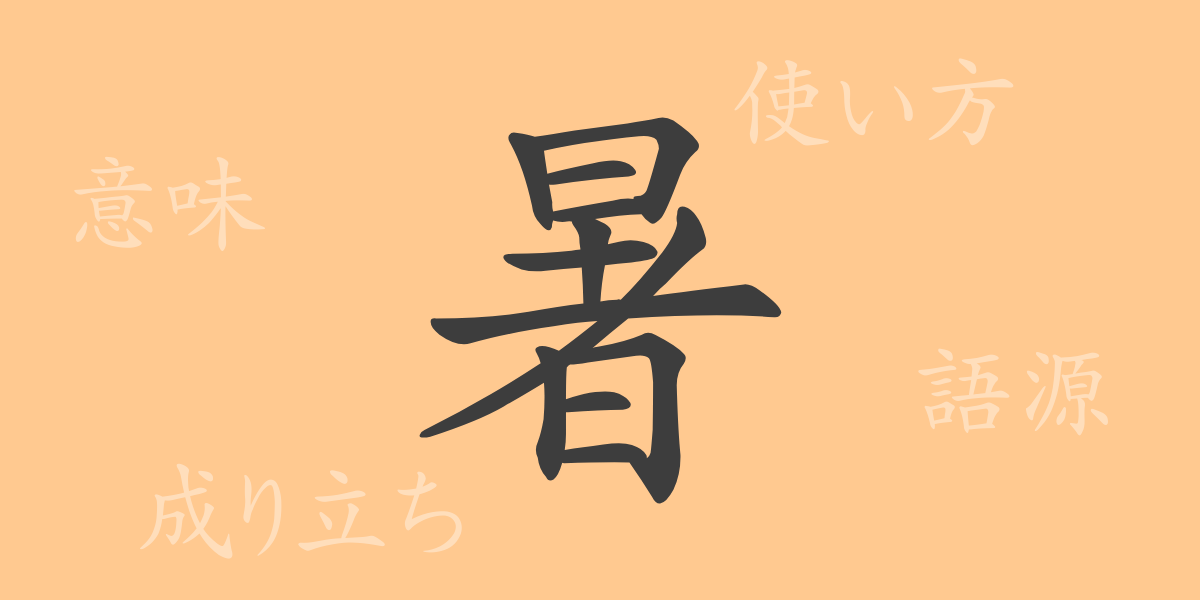The kanji “暑(あつ)” brings a sense of the changing seasons, especially signaling the arrival of summer. This character, deeply rooted in our daily lives, carries meanings beyond just a simple letter. In this article, we delve into the history, meaning, and role of “暑(あつ)” in Japanese life. Let’s explore the culture and knowledge behind this character, which symbolizes Japan’s long summer.
暑の成り立ち(語源)
The kanji “暑(あつ)” originated in ancient China. It is composed of “日(ひ)” meaning sun, and “者(しゃ)” which acts as a phonetic component. This combination represents the state of feeling intense direct sunlight, leading to the meaning of “hot.” Over time, this character was introduced to Japan, where unique readings and usages developed.
暑の意味と用法
“暑(あつ)” refers to a high temperature, particularly when it feels hot to the human body. In Japan, it is commonly used during the summer season and frequently appears in daily conversations and weather forecasts. Expressions like “暑い日(あついひ)” (hot day) and “暑中見舞い(しょちゅうみまい)” (summer greeting card) make it a familiar part of Japanese summer culture.
暑の読み方・画数・部首
How is the kanji “暑(あつ)” used in Japanese, and what are its characteristics?
- 読み方: 音読みでは「ショ(しょ)」、訓読みでは「あつい」と読みます。
- 画数: 「暑(あつ)」は総画数が9画です。
- 部首: 部首は「日(ひ)」です。これは太陽や日時を意味する部首で、「暑(あつ)」の漢字には太陽の強さが表現されています。
暑を使った熟語・慣用句・ことわざとその意味
There are numerous idioms, phrases, and proverbs in Japanese that include the kanji “暑(あつ).” These reflect Japan’s climate, culture, and lifestyle.
- 暑中見舞い(しょちゅうみまい): A custom of sending greeting cards to friends and family during the hot summer season, wishing them well.
- 酷暑(こくしょ): A term referring to extremely hot weather or climate.
- 暑気あたり(しょきあたり): Heatstroke or any illness caused by excessive heat.
- 暑さ寒さも彼岸まで(あつささむさもひがんまで): A proverb meaning that extreme heat and cold will subside around the equinoxes.
暑についてのまとめ
The kanji “暑(あつ)” encompasses more than just the notion of high temperatures; it embodies the culture and customs of the Japanese summer. Through this character, we can sense the seasonal changes and see the wisdom and ingenuity of the Japanese people in adapting to them. By understanding the meanings behind each word, we can enjoy a richer linguistic and cultural experience.

























